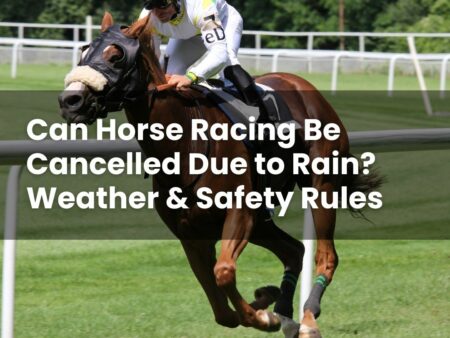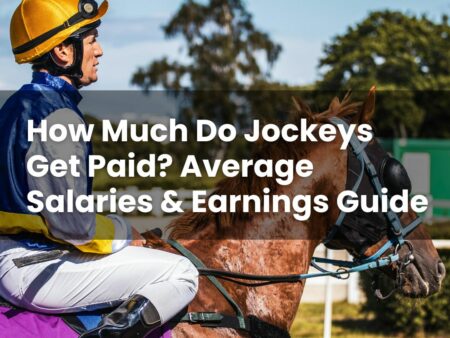Football betting can be confusing, especially when it comes to how certain moments during a match can affect your bet. A question that often comes up is whether a handball counts as a foul in betting terms. If you’ve ever watched a player handle the ball and wondered if it will impact your bet, you’re not alone.
This guide will walk you through how handballs are judged in football, how bookmakers decide what counts as a foul, and how these decisions can affect different types of bets. Whether you’re completely new to betting, or just want to understand how match events are recorded, this should make things clearer when looking at football betting markets.
What Counts as a Handball in Football?
In football, a handball happens when a player deliberately touches the ball with their hand or arm. However, not all contact is classed as an offence. The decision comes down to how the referee interprets it, following the Laws of the Game set by IFAB (International Football Association Board).
If the player’s hand or arm makes their body unnaturally bigger, or moves towards the ball, it’s more likely to be considered a handball. For example, if a defender jumps with arms out wide and the ball hits their hand, the referee may penalise it. But if the arm is close to the body or the ball strikes it from close range without movement, it might not be given.
Goalkeepers are treated differently. Inside their penalty area, they’re allowed to handle the ball. But if a keeper touches the ball with their hand outside the box, that can result in a handball offence.
Handball decisions are sometimes reviewed using VAR (Video Assistant Referee), but the final judgement still rests with the on-field referee.
Why Some Handballs Count and Others Don’t
For betting purposes, whether a handball counts depends on how it’s recorded in the official match data. If the referee penalises a handball and awards a free kick or penalty, this may be logged as a foul—but not always.
Some data providers, such as Opta, are used by bookmakers to decide how bets are settled. If a handball incident isn’t registered by that provider as a foul, it won’t affect bets based on fouls or booking points.
For example, imagine you’ve placed a bet on over 26.5 total match fouls. If a player is penalised for a handball, but it isn’t listed in the official stats as a foul, it won’t count towards that total. Even if it looked like a foul on TV, the bookmaker goes by the stats provider’s record.
Because of this, two handballs in the same match might be treated differently. One might be recorded as a foul, while the other isn’t—depending on the context and the decision made by the referee and match statisticians.
Handball Decisions and Their Impact on Bets
The way handballs affect your bet comes down to the specific market you’ve chosen. Some bets rely on the number of fouls, cards, or free kicks. Others are based on goals, penalties, or specific player actions.
If a handball results in a penalty and the referee awards it, it may count in markets like “Penalty Awarded – Yes” or “Player to Give Away a Penalty”. If the same handball is not penalised, or the referee lets play continue, it won’t have any impact on those markets.
Most bookmakers rely on stats from external providers like Opta or STATS Perform. These sources don’t always list handballs as fouls unless they meet their criteria. This means your bet might not be affected even if a handball was clearly shown on TV.
For example, if you placed a player-specific bet—such as “Player X to commit 2+ fouls”—a handball would only count if officially recorded as a foul. If not, it won’t be included, even if the referee blew the whistle.
It’s also worth noting that bets affected by VAR decisions follow the final call made by the referee. If VAR overturns a decision and no foul is awarded, the handball won’t count towards your bet.
Placing Bets on Handballs
Some bookmakers offer markets that involve handball-related incidents, but they tend to be limited to high-profile matches or tournaments. These might include bets like:
- Will a penalty be awarded for a handball?
- Will a specific player commit a handball?
- Number of handballs in a match
You’ll usually find these under categories like Player Specials, Cards & Fouls, or Match Events. Each bookmaker may group these differently, so it may take a bit of browsing to find them.
To place a bet, you’d sign up with a UK-licensed bookmaker and browse the football section for available matches. Once you’ve selected a market, you choose your stake (in pounds sterling), then confirm the bet.
It’s important to check the terms of each market. For example, one bookmaker may count all handball fouls, while another may only count handballs leading to penalties. These differences can matter when your bet is settled.
Not every bookmaker offers detailed bet types like these, and availability can vary from match to match. The rules behind how bets are recorded and settled are usually explained in the site’s help or terms section.
Payouts When Handballs Are Called
Whether a bet pays out after a handball depends on what you bet on and how the match data is recorded. Most bookmakers follow what’s listed in the official statistics.
For example, if you bet on “Over 29.5 fouls in a match” at odds of 10/11, your bet wins if the stats provider records 30 or more fouls. If a handball is called during the match, but not listed as a foul, it won’t be counted.
In this case, a £10 bet would return £19.09 if it wins—that’s your £10 stake plus £9.09 profit. However, if the total reaches only 29 because a handball wasn’t counted, your bet would lose.
There are also more specific bet types such as “Penalty to be given for handball”. This bet only pays out if a handball leads directly to a penalty, and the incident is confirmed in the official records.
Some bookmakers may use different criteria for certain markets, so it may be a good idea to read their settlement rules carefully before betting. It can also help to compare markets across different bookmakers if you’re looking for something specific.
Gambling is a personal choice and should be seen as entertainment, not a way to make money. Outcomes are uncertain, and no strategy guarantees success.
Be sure to set limits, take breaks, and use safer gambling tools. If it stops feeling fun, visit BeGambleAware.org or call 0808 8020 133 for free, confidential help.







